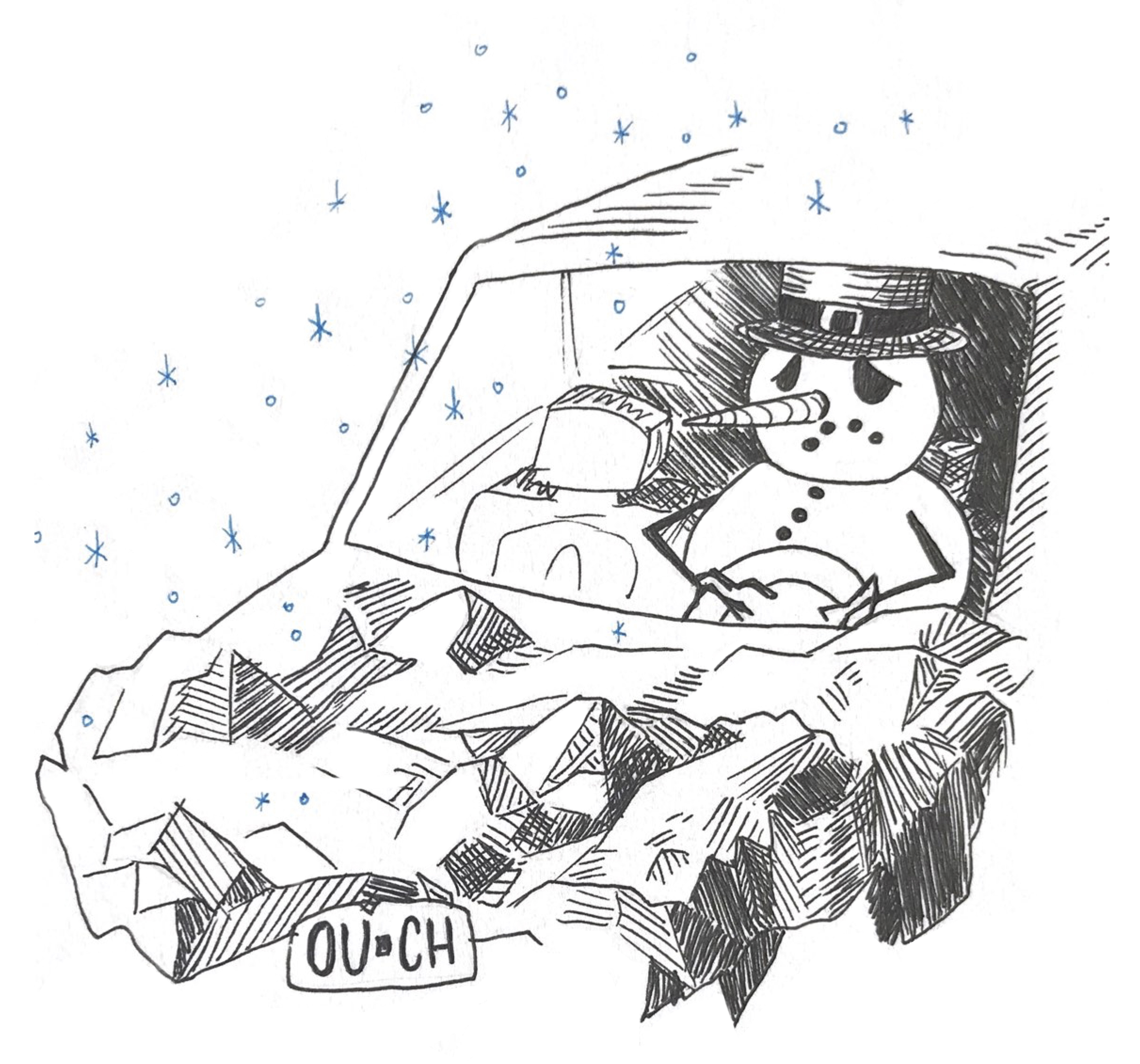Handling Automotive Accidents in Cold Weather Conditions
BY: TYRA LEESMAN
Print Editor-In-Chief

December in Saint Louis means slick driving conditions, biting winds and dark daylight hours. Locals in the Lou are preparing for the next big freeze, when driving to work, school and daily activities can become dangerous. It may be that employees spend the night at work because they are unwilling to brave the ice. This is the case for Sarah Dawns, a Meramec LPN program graduate who cares for private residents in their homes.
“These people can’t be alone because they can’t take care of themselves. So if my replacement is snowed in, I have to stay. That’s almost preferable, though because I’ve seen so many car accidents along 55 and 270 the past few years. St. Louis drivers don’t use turn signals and they either go too slow or too fast. There is no in between. It’s a recipe for fatalities, is what it is,” said Dawns.
“Be prepared. Have emergency numbers with you. Have your insurance cards with you and your emergency cards. Wear med alert bracelets for allergies,” said Cynthia Hartwig, Nursing Program Coordinator and nursing professor at STLCC Meramec.
According to Dawns, it is best to avoid travel when conditions are bad, but those who find that they must face the icy roads should have essential items in their cars for emergencies. Kitty litter can help a stuck vehicle get back on the road, chemical hand warmers can keep frostbite away in case of being stranded, and having layers of warm clothing, hats and gloves for everyone in the family tucked away in the trunk could save lives.
Dawns also recommends having a cell phone charger and gas can, and never leaving the house without checking in with someone to let them know where and when the driver will arrive.
“Have layers with you. If you’re stuck, you can start to become hypothermic. Have water. Maybe some simple snacks, as well,” advises Hartwig.
Car insurance companies like Progressive and Geico have published “What to Do if You’re In An Accident” brochures in the past, which outline what a driver or passenger should do if they are involved in an accident.
Reading through this material ahead of time prepares drivers for the next actions they will need to take following a collision.
“If you’re hurt, stay belted in and wait for help. Call 9-1-1 if you have your phone and you’re able. If you’re hurt, or the people in the car with you are hurt, stay there. Wait for EMTs to come and help you if you can.
Don’t let strangers move you unless you’re in immediate danger. You never know, you could have an injury you don’t know about and move you could endanger you further,” said Dawns.
While witnesses to an accident must stop and contact police by law, according to Dawns, it may not be wise for those who did not see the accident occur to stop and aid wrecked vehicles in icy conditions if it isn’t absolutely necessary.
“If you’re okay enough to help others, do so at your own risk. There are going to be other cars still on the icy road, and it’s still going to be dangerous. Make sure you move vehicles to the side of the road if possible. Just be prepared and calm, and use common sense. That may just mean staying out of the way and getting home safely so that EMTs aren’t out on the icy roads getting you, too,” said Dawns.












